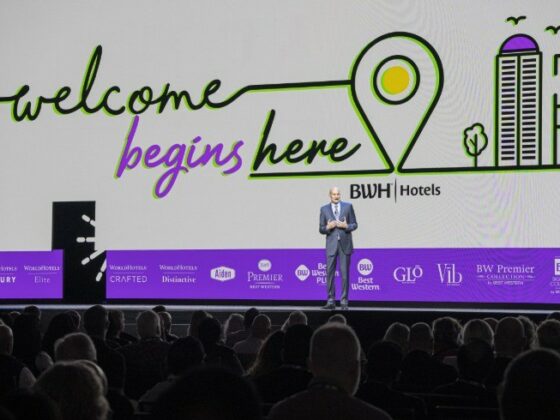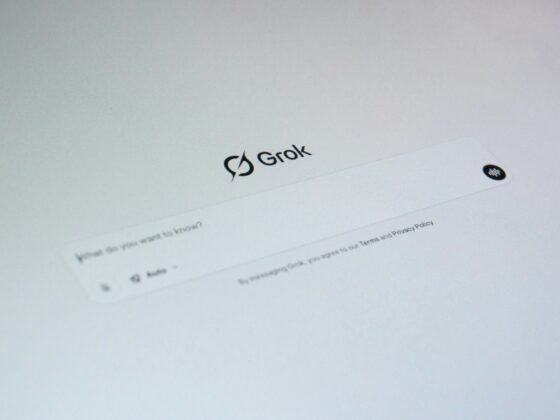
Imagine you’re a traveller scrolling through countless short-term rental listings, searching for the perfect place to stay. You have questions — lots of them — and you reach out to a few hosts hoping for quick, personalised responses that will help you make a decision. This critical pre-booking stage is where first impressions are made and potential bookings are won or lost.
Over the past year, AI has dramatically reshaped how hosts and property managers interact with guests after they’ve made a booking. The once tedious dance of manual communications – endless emails, missed calls, and generic responses – has evolved into a seamless exchange. AI-driven automation now handles much of the heavy lifting: providing instant and accurate answers to questions, offering personalised recommendations for local attractions, and sending timely updates about the stay. These advancements have made post-booking interactions not just efficient but genuinely enriching, enhancing the overall guest experience.
But here’s the catch: while AI excels after a booking is confirmed, it often falls short during the initial enquiry stage. Without prior interaction or detailed guest data, AI struggles to move beyond generic, cookie-cutter responses. It can’t tap into the unique needs or motivations behind each enquiry, making it difficult to provide tailored information or address specific concerns. This leads to missed opportunities to connect with potential guests right when they’re most receptive.
Ironically, the pre-booking stage is where personalisation matters most. While many travellers may have already made their decision before sending a message, this moment is about setting the guest’s expectations for their stay, getting them excited, and laying the groundwork for a 5-star review. A prompt, personalised reply can make all the difference in inspiring confidence and encouraging a booking. It’s the moment where a traveller decides whether a property feels like a home away from home or just another listing among many.
So how can the short-term rental industry bridge this personalisation gap during the enquiry stage? The key lies in enriching the AI’s knowledge base even when guest data is scarce. By providing detailed property information that can answer those niche and specific questions, AI can offer more engaging and personalised responses from the very first interaction. Even without knowing anything about the guest, interactions can feel genuine and tailored when AI has access to the most granular information possible — details that go far beyond the number of bedrooms or the Wi-Fi speed.
Consider the difference it would make if AI could tell a potential guest not just that a property is pet-friendly, but that the local dog park opens at 7 a.m. and is just a five-minute walk away. Or if a family inquiring about child-friendly amenities learns that the children’s room features organic cotton bedding and a selection of age-appropriate books and toys. These specifics transform a standard response into a meaningful dialogue that addresses the unique concerns and desires of each traveller.
The industry’s challenge is to ensure that AI is fed with the right information to get the most out of it during this crucial phase. This means going beyond the basics and diving into the nuances that make each property unique. Detailed descriptions, local insights, and up-to-date information can empower AI to provide answers that are not only accurate but also resonate on a personal level with potential guests.
Guidebooks can serve as a valuable hub of knowledge in this context. By treating them as dynamic, live resources that are constantly updated, property managers and hosts can create a rich repository of knowledge that AI can tap into. Integrating these guidebooks with property management systems allows AI to seamlessly access and utilise this information during guest interactions.
A traveller asking about ski rentals nearby, for instance. With access to an up-to-date guidebook, AI can provide highly specific and actionable recommendations. Rather than offering a vague suggestion like “There are ski rentals nearby,” the AI can detail, “There are several ski rental shops within a five-minute walk, such as Alpine Rentals and SnowGear Pro, both offering equipment for all skill levels. Alternatively, your accommodation offers ski rentals directly on-site, which could be more convenient for you.”
It’s this level of detail that not only saves the traveller time but also enhances their overall experience by tailoring the response to their immediate needs. This information can then be paired with the context of the conversation and layered with local insights and updates, creating communication that feels genuine and authentic. By anticipating common enquiries and proactively enriching the AI’s knowledge base, the industry can transform pre-booking communication into a personalised and engaging experience – all without knowing a thing about any specific future guest.
That said, enriching AI’s knowledge base is only part of the solution. Those wanting to unlock the full potential of AI-powered guest messaging must also pay attention to the property management software (PMS) they use. A well-designed PMS should reduce “hallucinations” — cases where AI generates incorrect or misleading information — to keep responses accurate and reliable. It should also enable AI to learn from past host interactions so that replies feel authentic and reflect the host’s unique style. A PMS with strong AI capabilities, paired with detailed information, is essential.
Final word
As AI continues to redefine guest communication, it’s clear that while we’ve covered 80% of the journey, a crucial 20% remains untapped. The pre-booking phase is where relationships are built, trust is earned, and decisions are made — and it’s precisely here that the industry needs to work harder to provide AI with the information it needs to excel. By fine-tuning its capabilities and enriching it with nuanced, property-specific insights, AI’s full potential can be unlocked.








